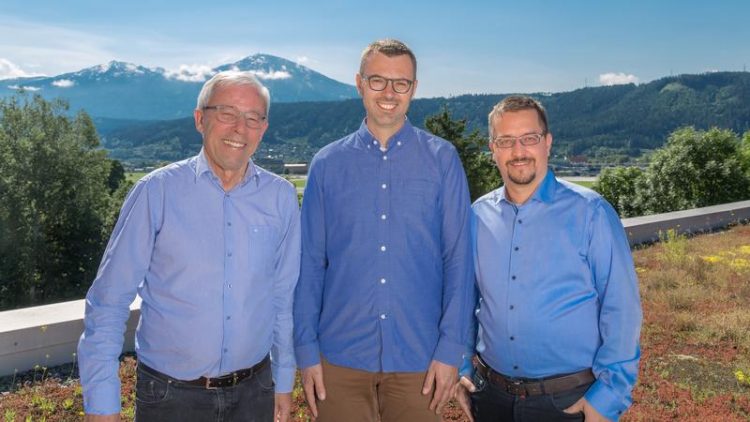Quantum computers by AQT and University of Innsbruck leverage Cirq for quantum algorithm development

Picture showing Prof. Peter Zoller (left, Univ. of Innsbruck), Dr. Markus Hoffmann (Google), and Dr. Thomas Monz (AQT) upon completing the projects M. R. Knabl
Quantum computers and software
Several research facilities and companies are working on the realisation of quantum computers. There are multiple physical platforms that might host a future quantum computer, where AQT pursues trapped ions and Google is following an approach based on superconducting electronics.
Each approach has different capabilities and limitations, generally reflected in different programming languages dependent on the device. This mix of program languages makes it hard for software engineers and programmers to use these quantum computer prototypes as well as to explore the capabilities of different architectures.
Quantum Innsbruck and Quantum Munich
Google developed a Python framework. called Cirq for creating, editing, and invoking Noisy Intermediate Scale Quantum (NISQ) circuits Dr. Markus Hoffmann from Google Munich explains “It's great to see the adoption of Cirq following the spirit of the Apache 2.0 open source license and making further hardware platforms accessible to the Cirq developer community.”
The library supports multiple hardware architectures, based on superconducting electronics and atomic systems. Now, researchers and industry partners can readily run their quantum software on the Innsbruck quantum computers and also enable students to build out expertise on running quantum algorithms on actual hardware. Besides research, these efforts also benefit the quantum computer startup AQT in Austria.
CEO Dr. Thomas Monz “is delighted to provide such a simple and effective interface between international quantum software developers and our Innsbruck-based quantum computer infrastructure to facilitate the realization of an entire suite of quantum apps for research and industry partners.” Dr. Philipp Schindler at the University of Innsbruck is convinced that the interface will enable new collaborations with research partners around the world.
About AQT:
AQT is a quantum computer startup located in Innsbruck, building on decades of experimental and theoretical expertise in the field of quantum information processing. The goal of AQT is to get quantum technologies out of a laboratory environment and turn these technologies into everyday-products. The long-term goal is a quantum computer based on trapped ions that can be readily operated from any PC or laptop.
About University of Innsbruck:
The work groups at the University of Innsbruck are, amongst other efforts, performing research on clocks, sensors, simulators and quantum computers with ion traps. Together with the Austrian Academy of Sciences, the University of Innsbruck is an internationally recognized center for quantum research.
Dr Thomas Monz
Alpine Quantum Technologies (AQT)
phone: +43 512 507 52452
email: thomas.monz@aqt.eu
web: https://www.aqt.eu/
Dr Philipp Schindler
Department of Experimental Physics
University of Innsbruck
phone: +43 512 507-52466
email: philipp.schindler@uibk.ac.at
web: https://www.uibk.ac.at
Dr Markus Hoffmann
Google
email: markushoffmann@google.com
Media Contact
All latest news from the category: Information Technology
Here you can find a summary of innovations in the fields of information and data processing and up-to-date developments on IT equipment and hardware.
This area covers topics such as IT services, IT architectures, IT management and telecommunications.
Newest articles

First-of-its-kind study uses remote sensing to monitor plastic debris in rivers and lakes
Remote sensing creates a cost-effective solution to monitoring plastic pollution. A first-of-its-kind study from researchers at the University of Minnesota Twin Cities shows how remote sensing can help monitor and…

Laser-based artificial neuron mimics nerve cell functions at lightning speed
With a processing speed a billion times faster than nature, chip-based laser neuron could help advance AI tasks such as pattern recognition and sequence prediction. Researchers have developed a laser-based…

Optimising the processing of plastic waste
Just one look in the yellow bin reveals a colourful jumble of different types of plastic. However, the purer and more uniform plastic waste is, the easier it is to…



